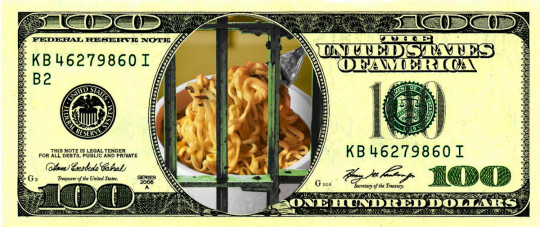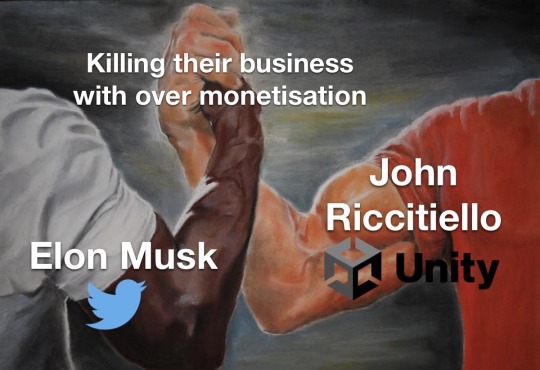#Market Prices
Link

Take a deeper dive with us into what's happened to Peruvian Avocado prices in Japan market.
0 notes
Link
New demand to combat OCR hikes
The RBNZ introduced a 0.75% hike in the OCR, as of the final policy meeting of the calendar year. Experts inferred an increase in rates by 25 basis points; a survey concluded that investors had, however, expected a hike along the lines of 50 basis points. Press statements from the RBNZ report that this was a highly likely scenario; although, the RBNZ meeting finally signed off on 25 basis points as the best option at hand.
The Government however looked to soften the blow of the OCR hike by reopening its borders in 2023. This spells new consumers and increased housing demand even as NZ looks to recover from a swap rate drop of 20 basis points in two years. Christchurch housing market news indicates strong a demand for quality housing in Christchurch suburbs for buyers with debt or on a budget.
#webuyproperty#property#property market#Christchurch housing market#market prices#RBNZ#real estate buyers#investment opportumities#new zealand
0 notes
Text
obsessed with iskall somehow successfully selling gem a penthouse at the bottom of the complex by marketing it as an “australian penthouse”… “we call it the pearl” ok man
#she spent 50 diamonds on this btw because iskall lowered the price from 50 diamond blocks to 50 diamonds#marketing genius#iskall85#geminitay#hermitcraft#hermitcraft smp#hermitcraft season 10#hermitcraft s10#hermitcraft 10#hc10
289 notes
·
View notes
Text
Market Prices are Still Higher, But How long?
Market Prices are Still Higher, But How long?
Market Prices are still higher, but for how long? Commodity markets are rarely dull and sometimes are outright wild. One-quarter of the way into 2022, and we’ve seen a lot of upward pressure in several commodities. The curious question is how long is this going to last given multiple outside factors that could bring the higher push to a halt.
Mike Zuzolo is the founder and president of Global…

View On WordPress
#black rhinos#commodities#Commodity Markets#corn market#crude oil#Demand#diesel fuel#E15#energy#Exports#heating oil#hedges#High Path Avian Influenza#Hogs and Pigs Report#Market Prices#markets#NATO#planting delays#prices#Russia#soybeans#summer#Supply#Trade#Ukraine#USDA#vegetable oil
0 notes
Text
On The Rob by Cheap Dirty Horse (source)
418 notes
·
View notes
Text
Greedflation, but for prisoners

I'm touring my new, nationally bestselling novel The Bezzle! Catch me TOMORROW (Apr 21) in TORINO, then Marin County (Apr 27), Winnipeg (May 2), Calgary (May 3), Vancouver (May 4), and beyond!

Today in "Capitalists Hate Capitalism" news: The Appeal has published the first-ever survey of national prison commissary prices, revealing just how badly the prison profiteer system gouges American's all-time, world-record-beating prison population:
https://theappeal.org/locked-in-priced-out-how-much-prison-commissary-prices/
Like every aspect of the prison contracting system, prison commissaries – the stores where prisoners are able to buy food, sundries, toiletries and other items – are dominated by private equity funds that have bought out all the smaller players. Private equity deals always involve gigantic amounts of debt (typically, the first thing PE companies do after acquiring a company is to borrow heavily against it and then pay themselves a hefty dividend).
The need to service this debt drives PE companies to cut quality, squeeze suppliers, and raise prices. That's why PE loves to buy up the kinds of businesses you must spend your money at: dialysis clinics, long-term care facilities, funeral homes, and prison services.
Prisoners, after all, are a literal captive market. Unlike capitalist ventures, which involve the risk that a customer will take their business elsewhere, prison commissary providers have the most airtight of monopolies over prisoners' shopping.
Not that prisoners have a lot of money to spend. The 13th Amendment specifically allows for the enslavement of convicted criminals, and so even though many prisoners are subject to forced labor, they aren't necessarily paid for it:
https://pluralistic.net/2024/04/02/captive-customers/#guillotine-watch
Six states ban paying prisoners anything. North Carolina caps prisoners' pay at one dollar per day. Nationally, prisoners earn $0.52/hour, while producing $11b/year in goods and services:
https://www.dollarsandsense.org/archives/2024/0324bowman.html
So there's a double cruelty to prison commissary price-gouging. Prisoners earn far less than any other kind of worker, and they pay vastly inflated prices for the necessities of life. There's also a triple cruelty: prisoners' families – deprived of an incarcerated breadwinner's earnings – are called upon to make up the difference for jacked up commissary prices out of their own strained finances.
So what does prison profiteering look like, in dollars and sense? Here's the first-of-its-kind database tracking the costs of food, hygiene items and religious items in 46 states:
https://theappeal.org/commissary-database/
Prisoners rely heavily on commissaries for food. Prisons serve spoiled, inedible food, and often there isn't enough to go around – prisoners who rely on the food provided by their institutions literally starve. This is worst in prisons where private equity funds have taken over the cafeteria, which is inevitable accompanied by swingeing cuts to food quality and portions:
https://theappeal.org/prison-food-virginia-fluvanna-correctional-center/
So you have one private equity fund starving prisoners, and another that's gouging them on food. Or sometimes it's the same company. Keefe Group, owned by HIG Capital, provides commissaries to prisons whose cafeterias are managed by other HIG Capital portfolio companies like Trinity Services Group. HIG also owns the prison health-care company Wellpath – so if they give you food poisoning, they get paid twice.
Wellpath delivers "grossly inadequate healthcare":
https://theappeal.org/massachusetts-prisons-wellpath-dentures-teeth/
And Trinity serves "meager portions of inedible food":
https://theappeal.org/clayton-county-jail-sheriff-election/
When prison commissaries gouge on food, no part of the inventory is spared, even the cheapest items. In Florida, a packet of ramen costs $1.06, 300% more inside the prison than it does at the Target down the street:
https://www.documentcloud.org/documents/24444312-fl_doc_combined_commissary_lists#document/p6/a2444049
America's prisoners aren't just hungry, they're also hot. The climate emergency is sending temperatures in America's largely un-air-conditioned prisons soaring to dangerous levels. Commissaries capitalize on this, too: an 8" fan costs $40 in Delaware's Sussex Correctional Institution. In Georgia, that fan goes for $32 (but prisoners are not paid for their labor in Georgia pens). And in scorching Texas, the commissary raised the price of water by 50% last summer:
https://www.tpr.org/criminal-justice/2023-07-20/texas-charges-prisoners-50-more-for-water-for-as-heat-wave-continues
Toiletries are also sold at prices that would make an airport gift-shop blush. Need denture adhesive? That's $12.28 in an Idaho pen, triple the retail price. 15% of America's prisoners are over 55. The Keefe Group – sister company to the "grossly inadequate" healthcare company Wellpath – operates that commissary. In Oregon, the commissary charges a 200% markup on hearing-aid batteries. Vermont charges a 500% markup on reading glasses. Imagine spending decades in prison: toothless, blind, and deaf.
Then there's the religious items. Bibles and Christmas cards are surprisingly reasonable, but a Qaran will run you $26 in Vermont, where a Bible is a mere $4.55. Kufi caps – which cost $3 or less in the free world – go for $12 in Indiana prisons. A Virginia prisoner needs to work for 8 hours to earn enough to buy a commissary Ramadan card (you can buy a Christmas card after three hours' labor).
Prison price-gougers are finally facing a comeuppance. California's new BASIC Act caps prison commissary markups at 35% (California commissaries used to charge 63-200% markups):
https://theappeal.org/price-gouging-in-california-prisons-newsom-signature/
Last year, Nevada banned any markup on hygiene items:
https://www.leg.state.nv.us/App/NELIS/REL/82nd2023/Bill/10425/Overview
And prison tech monopolist Securus has been driven to the brink of bankruptcy, thanks to the activism of Worth Rises and its coalition partners:
https://pluralistic.net/2024/04/08/money-talks/
When someone tells you who they are, believe them the first time. Prisons show us how businesses would treat us if they could get away with it.

If you'd like an essay-formatted version of this post to read or share, here's a link to it on pluralistic.net, my surveillance-free, ad-free, tracker-free blog:
https://pluralistic.net/2024/04/20/captive-market/#locked-in
#pluralistic#carceral state#price gouging#greedflation#prisons#the bezzle#captive markets#capitalists hate capitalism#monopolies#the appeal#keefe group#hig capital#guillotine watch#wellpath#trinity services group#sussex correctional institute#cooked alive#air conditioning#climate change#idaho#oregon#freedom of religion#vermont#florida#kentucky#georgia#arkansas#wyoming#missouri#ramen
168 notes
·
View notes
Text



Jenny Agutter as Nurse Alex Price
AN AMERICAN WEREWOLF IN LONDON (1981)
dir. John Landis
#an american werewolf in london#aawil#aawiledit#jenny agutter#alex price#filmedit#horroredit#horror#80s horror#mine#my gf fr fr#alex is the epitome of the fuck it we ball-mentality#her flavor of deranged is energetically aligned w/my own and I luv her so v v much#made these bc there's a GAP in the MARKET for gifsets of my beautiful wife!!! and the first set I made was. really and truly. hot dog water
426 notes
·
View notes
Text

i dont remember if i ever posted this pin separately here or not but uhhh. here it is
#i was making a picture of all the stuff im going to bring on an art market with prices and everything#and i remembered about this pin existence#my art#undertale#mettaton
133 notes
·
View notes
Text
one of the absolute most infuriating things about resellers is when they get an item from goodwill or a yard sale but then they list it as "comes from a clean smoke free pet free home" because THEY don't smoke or have pets. but they got it FUCKING USED from who actually knows where!!! it's so annoying!!!!
#im still very mad about the lady who got the $5 bratz lot at a local yard sale and posted it for $250#she hasnt lowered the price even tho she knows im one of the only people in town in this market#i only want one doll from it but she also wont split it up or ship#shes literally just hoarding it
208 notes
·
View notes
Text

158 notes
·
View notes
Text
It's no surprise that living in Toronto has gotten more and more expensive. But now, the average price of a home in the city exceeds how much people make by a shocking amount.
According to a new report from RATESDOTCA released Thursday, the average Toronto home price surpasses the average median household income by 210 per cent.
The average home in Toronto costs a staggering $1,163,700, according to the MLS. This is $778,7000, or 210 per cent, more than what a typical household can manage with a median average income of $93,006, the report says.
Full article
Tagging: @politicsofcanada
#cdnpoli#canada#canadian#canadian politics#canadian news#toronto#ontario#housing#housing market#housing prices#housing crisis
138 notes
·
View notes
Link
Discover up-to-date market insights for South Africa. Insights cover product trends, market prices in major importing countries, and export volumes.
Learn more about Citrus, Apple, Blueberry, and Strawberry exports to India, the Middle East, China, and the EU.
#demand#south africa#market insights#producttrends#market prices#import#export#citrus#apple#blueberry#strawberry#india#middle east#china#eu
0 notes
Text
It’s Not Your Imagination—Secondhand Stuff IS More Expensive Than Ever
Have you noticed that secondhand stuff is more expensive than it used to be? Because I absolutely have!
Since I retired, I’ve been on a bit of a secondhand shopping spree. You see, I inherited almost all of my current furniture. I acquired it randomly from old roommates, friends moving across the country, my grandparents’ downsizing, and the legendary Allston Christmas. Now that work isn’t…

View On WordPress
#bargain hunting#buying used#comparison shopping#enshittification#flipping#frugal environmentalism#price fixing#resale market#secondhand#shopping#thrift stores
120 notes
·
View notes
Text
I genuinely love grocery shopping. It's like a trip to the food museum.
#I use around six. They all have slightly different stuff at different prices#And it depends where I am and when I decide to grocery shop#Oh shit no 7 if I count a bimonthly (every other) Costco run.#Sorry I love market research polls#Costco#Aldi#Whole foods#Food#Market research#groceries#post o' mine#Tumblr polls
70 notes
·
View notes
Text

65 notes
·
View notes
Text
Meatspace twiddling

I'm on tour with my new, nationally bestselling novel The Bezzle! Catch me next weekend (Mar 30/31) in ANAHEIM at WONDERCON, then in Boston with Randall "XKCD" Munroe (Apr 11), then Providence (Apr 12), and beyond!

"Enshittification" isn't just a way of describing the symptoms of platform decay: it's also a theory of the mechanism of decay – the means by which platforms get shittier and shittier until they are a giant pile of shit.
I call that mechanism "twiddling": this is the ability of digital services to alter their business-logic – the prices they charge, the payouts they offer, the particulars of the deal – from instant to instant, for each user, continuously:
https://pluralistic.net/2023/02/19/twiddler/
Contrary to Big Tech's own boasting about its operations, the tricks that tech firms play to siphon value away from business customers and end-users aren't very sophisticated. They're crude gimmicks, like offering a higher per-hour wage to Uber drivers whom the algorithm judges to be picky about which rides they'll clock in for, and then lowering the wage by small increments as a way of lulling the driver into gradually accepting a permanent lower rate:
https://pluralistic.net/2023/04/12/algorithmic-wage-discrimination/#fishers-of-men
This is a simple trick. The difference is that tech platforms like Uber can play it over and over, and very quickly. There's plenty of wage-stealing scumbag bosses who'd have loved to have shaved pennies off their workers' paychecks, then added a few cents back in if a worker cried foul, then started shaving the pennies again. The thing that stopped those bosses was the bottleneck of payroll clerks, who couldn't make the changes fast enough.
Uber plays crude tricks – like claiming that a driver isn't an employee because the control is mediated through an app – and then piles more crude tricks on top – this algorithmic wage discrimination gambit.
Have you ever watched a shell-game performed very slowly?
https://www.masterclass.com/articles/how-to-do-penn-tellers-famous-cups-and-balls-trick-in-12-steps
It's a series of very simple gimmicks, performed very quickly and smoothly. Computers are very quick and very smooth. The quickness of the hand deceives the eye: do crude tricks with superhuman speed and they'll seem sophisticated.
The one bright spot in the Great Enshittening that we're living through is that many firms are not sufficiently digitized to to these crude tricks very quickly. Take grocery stores: they can get up to a lot of the same tricks as Amazon – for example, they can charge suppliers for placement on the most prominent, easiest-to-reach shelves, reorganizing your shopping based on which companies pay the biggest bribes, rather than offering the best products and prices.
But Amazon takes this to a whole different level – beyond simply organizing their product pages based on payola, they do this for search. You ask Amazon, "What's your cheapest batteries?" and it lies to you. If you click the first link in a search-results page, you'll pay 29% more than you would if you got the best product – a product that is, on average, 17 places down on the results page. Amazon makes $38b/year taking bribes to lie to you:
https://pluralistic.net/2023/11/06/attention-rents/#consumer-welfare-queens
Amazon can do more than that. Thanks to its digital nature, it can continuously reprice its offerings – indeed, it can simply make up each price displayed on every product at the instant you look at it – based on its surveillance data about you, estimating your willingness to pay. For sellers, Amazon can continuously re-weight the likelihood that a given product will be shown to a customer based on the seller's willingness to discount their products, even to the point where they go out of business:
https://www.businessinsider.com/sadistic-amazon-treated-book-sellers-the-way-a-cheetah-would-pursue-a-sickly-gazelle-2013-10
Twiddling, in other words, lets digital services honeycomb their servers with sneaky wormholes that let them siphon value away from one kind of platform user and give it to another (as when Apple silently began spying on Iphone owners to create profiles for advertisers), or to themselves.
But hard-goods businesses struggle to do this kind of twiddling. Not for lack of desire – but for lack of capacity. Jeff Bezos, owner of Amazon Fresh – an online grocery store – can change prices and layout millions of times per day, at effectively zero cost. Jeff Bezos, owner of Whole Foods – a brick-and-mortar grocer – needs a army of teenagers on rollerskates with pricing guns to achieve a fraction of this agility.
So hard-goods businesses are somewhat enshittification-resistant. It's not that their owners are more interested in the welfare of their customers, workers and suppliers – they merely lack the capacity to continuously rejigger the way their business runs.
Well, about that.
Grocers have been experimenting with "electronic shelf labels" in order to do "dynamic pricing" – that means that prices change quickly, in response to circumstances:
https://www.npr.org/2024/03/06/1197958433/dynamic-pricing-grocery-supermarkets
This doesn't have to be bad! As @planetmoney points out, it's a little weird that grocers don't discount milk whose sell-by date is drawing near. That milk is worth less to shoppers, because they have to use it more quickly lest it expire. Instead of marking down the price of perishable goods – day-old lettuce, yesterday's bread, etc – grocers put them on the shelves next to fresher, more valuable products, leading to billions of dollars' worth of food-waste and and unimaginable quantities of methane-producing, planet-cooking landfill.
In Norway, ESLs are pretty well established and – at least according to Planet Money's reporting – they are used exclusively to offer discounts in order to reduce waste. They make everyone better off.
But towards the end of the story, they note that Norway's grocery sector – which alters prices up to 2,000 times per day – has been accused of using ESLs to rig prices, hiking them and blaming them on pandemic supply-chain problems and loose monetary policy. Greedflation, in other words.
Greedflation is rampant in the grocery sector, all around the world. Remember when the price of eggs doubled and they blamed in on bird-flu, even as the CEO of the one company that owns every egg brand you've ever heard of boasted about how he could hike prices and suckers would just pay it?
https://pluralistic.net/2023/01/23/cant-make-an-omelet/#keep-calm-and-crack-on
In Canada, grocers rigged the price of bread, the most Les-Mis-ass form of corporate crime you can imagine (do you want guillotines, Galen Weston? Because this is how you get guillotines):
https://en.wikipedia.org/wiki/Bread_price-fixing_in_Canada
EU grocers – another highly concentrated industry – also collude to rig prices:
https://pluralistic.net/2023/09/17/how-to-think-about-scraping/
Which is all to say that while these companies don't have to use the twiddling capabilities that come with ESLs to enshittify their stores, we'd be pretty fucking naive to assume that they won't.
And here's the bad news: US grocers like Whole Foods (owned by Amazon, the company that wrote the enshittification playbook) are already experimenting with ESLs. So is Alberstons/Safeway, the massive, inbred conglomerate that has already demonstrated its passion for using twiddling to fuck over their workers:
https://knock-la.com/vons-fires-delivery-drivers-prop-22-e899ee24ffd0/
Economists love "price discrimination" – where prices change based on circumstance, trying to match the perfect price with the perfect customer. On paper, that sounds plausible: if I need a quart of milk for a recipe I'm making tonight and I get a 50% discount on some about-to-expire 2%, then everyone's better off. I get a discount and the grocer gets some money for milk they'd have to throw away at the end of the day.
But these elegant, self-licking ice-cream cones only emerge if the corporation offering the deal is constrained. Perhaps they're constrained by competition – the fear that you'll go elsewhere. Or perhaps they're constrained by regulation – the fear that they'll be punished if they use twiddling-tech to cheat you.
The grocery sector, dominated by a cartel of massive companies that routinely collude to rip us off, is not constrained by competition. And for years, regulators let them get away with ripping us off (though finally that might be changing):
https://www.nytimes.com/2024/03/21/us/politics/grocery-prices-pandemic-ftc.html?unlocked_article_code=1.ek0.t2Pr.g4n2usbxEcoa
For neoclassical economists, the answer to all this is "caveat emptor" – let the buyer beware. If you want to make sure that ESLs are only used to offer you discounts and not to gouge prices, all you need to do is note the price of everything you buy, every time you buy it, and triple-check it every time you go back to the grocery store. Just be eternally vigilant!
Thing is, the one thing computers are much better at than humans is vigilance. With ESLs and other twiddling mechanisms, you're a fish on a hook, and the seller is tireless in giving you a little more slack, then a little less, until you finally drop your guard.
Economists desperately want these elegant models to work, but "efficient market hypothesis" is a brain-worm that always turns into apologetics for fraud. Dynamic markets sound like a good idea, but they are catnip for cheaters. "Just be eternally vigilant" is miserable advice, and no way to live your life:
https://pluralistic.net/2023/02/24/passive-income/#swiss-cheese-security
In his brilliant novel Spook Country, @GreatDismal describes augmented reality as "cyberspace everting" – that is, turning inside-out:
https://memex.craphound.com/2007/07/31/william-gibsons-spook-country/
The extrusion of twiddling technology from digital platforms into the physical world isn't cyberspace everting so much as it is cyberspace prolapsing.

If you'd like an essay-formatted version of this post to read or share, here's a link to it on pluralistic.net, my surveillance-free, ad-free, tracker-free blog:
https://pluralistic.net/2024/03/26/glitchbread/#electronic-shelf-tags
#pluralistic#fraud apologetics#caveat emptor#twiddling#competition#groceries#price discrimination#norway#electronic shelf tags#planet money#enshittification#constraints#greedflation#efficient market hypothesis brain-worms
244 notes
·
View notes